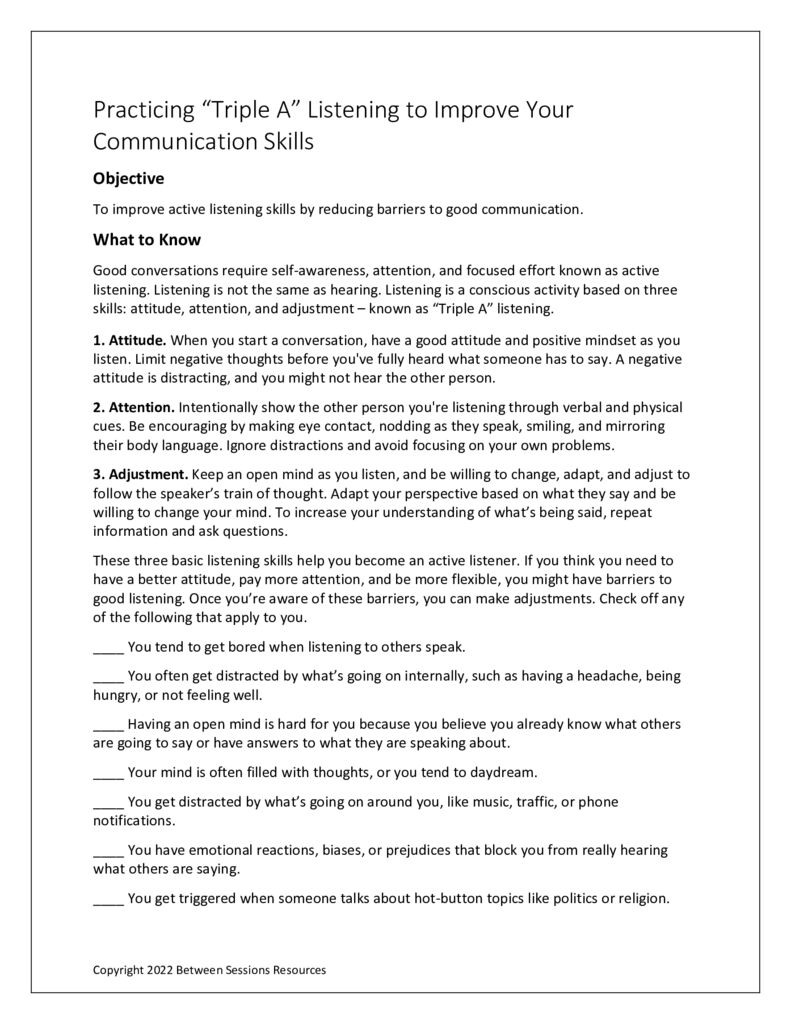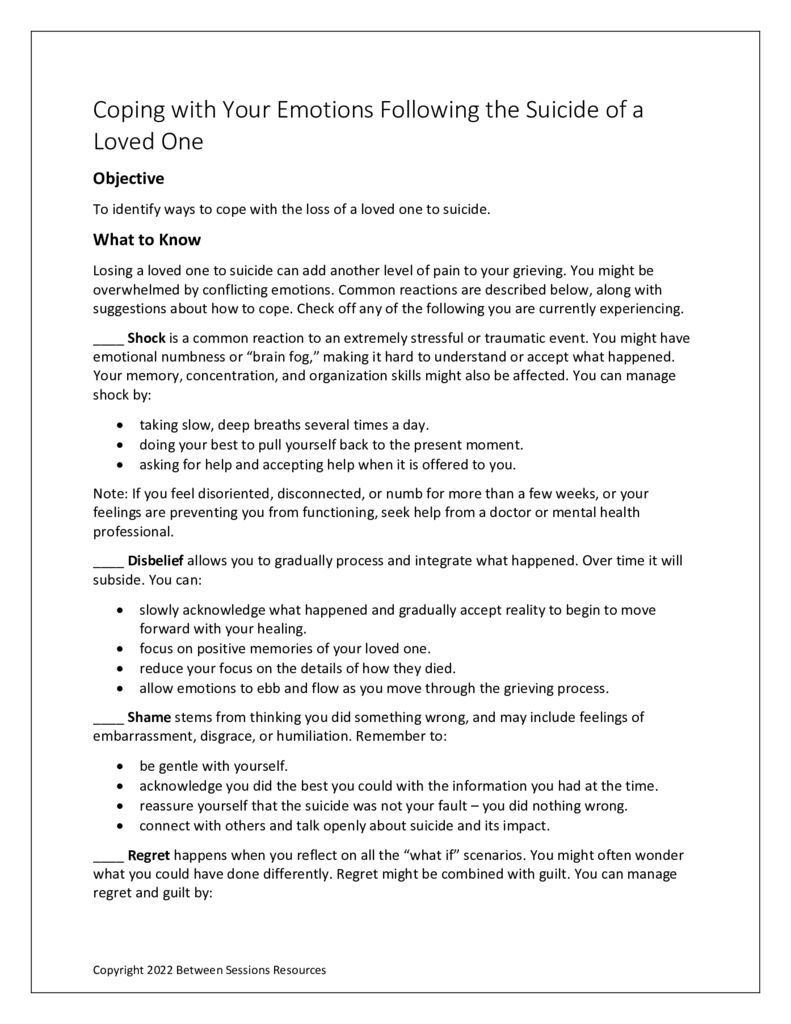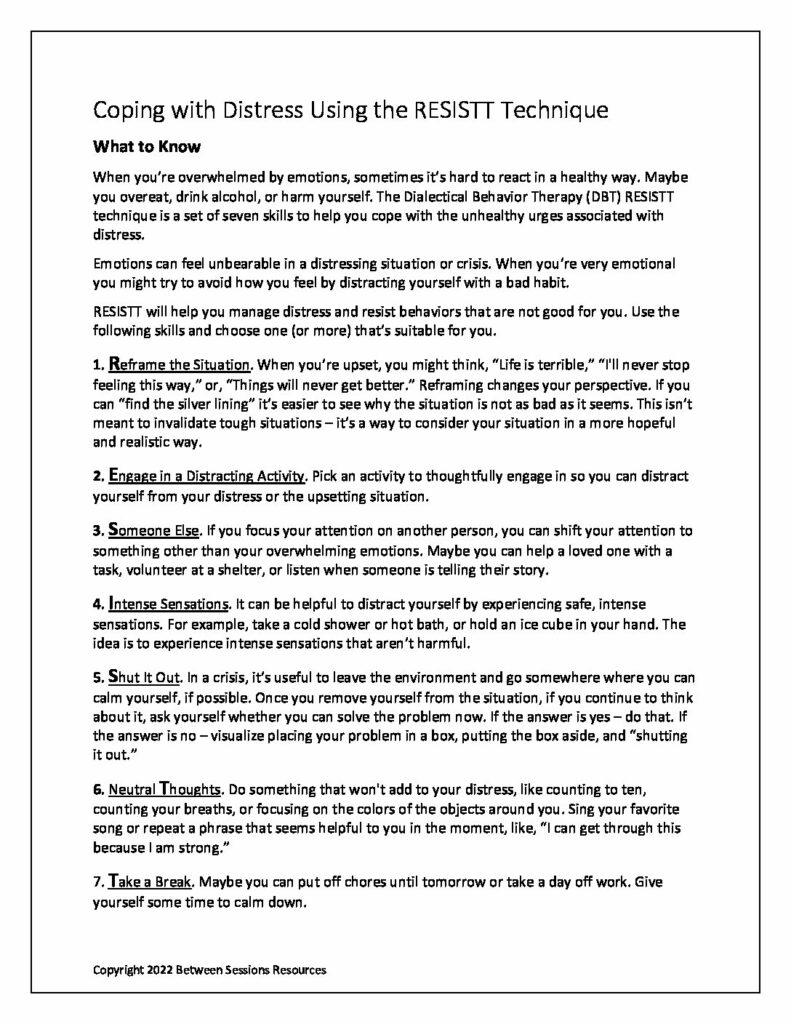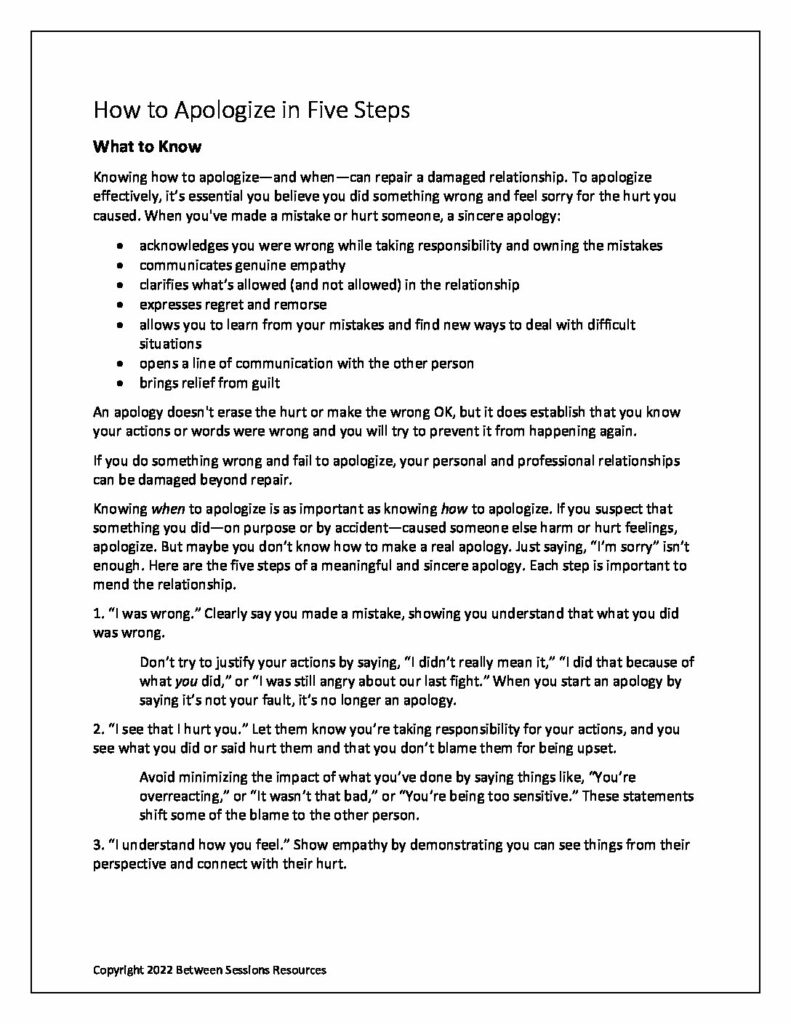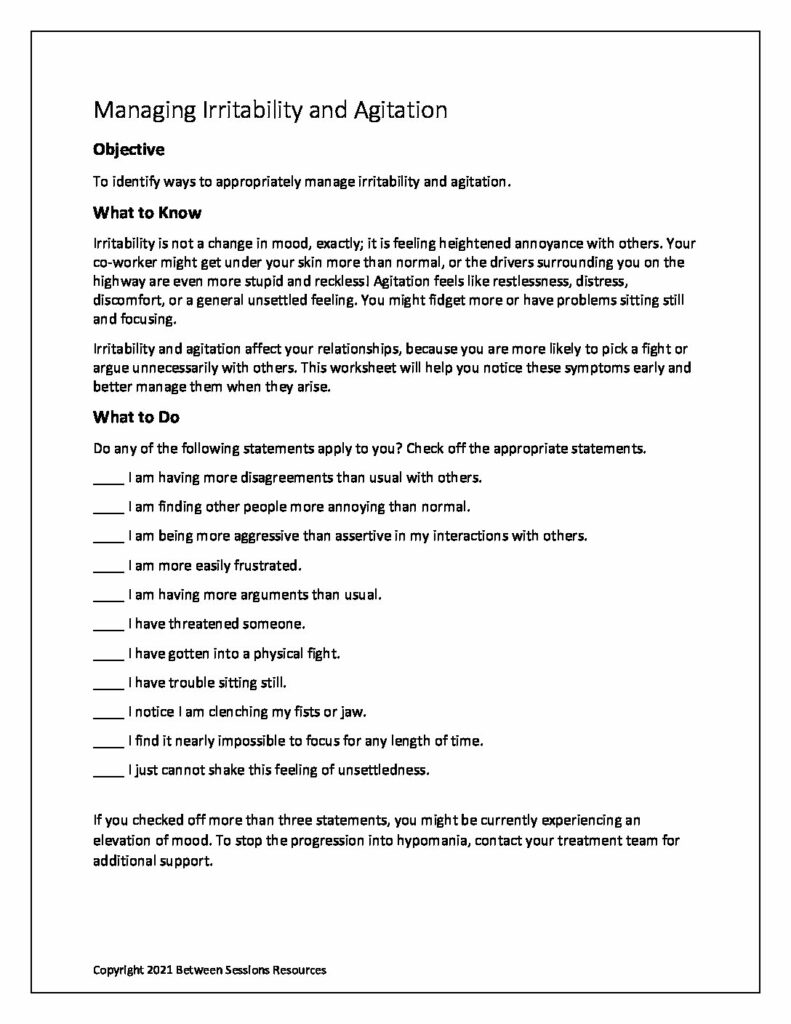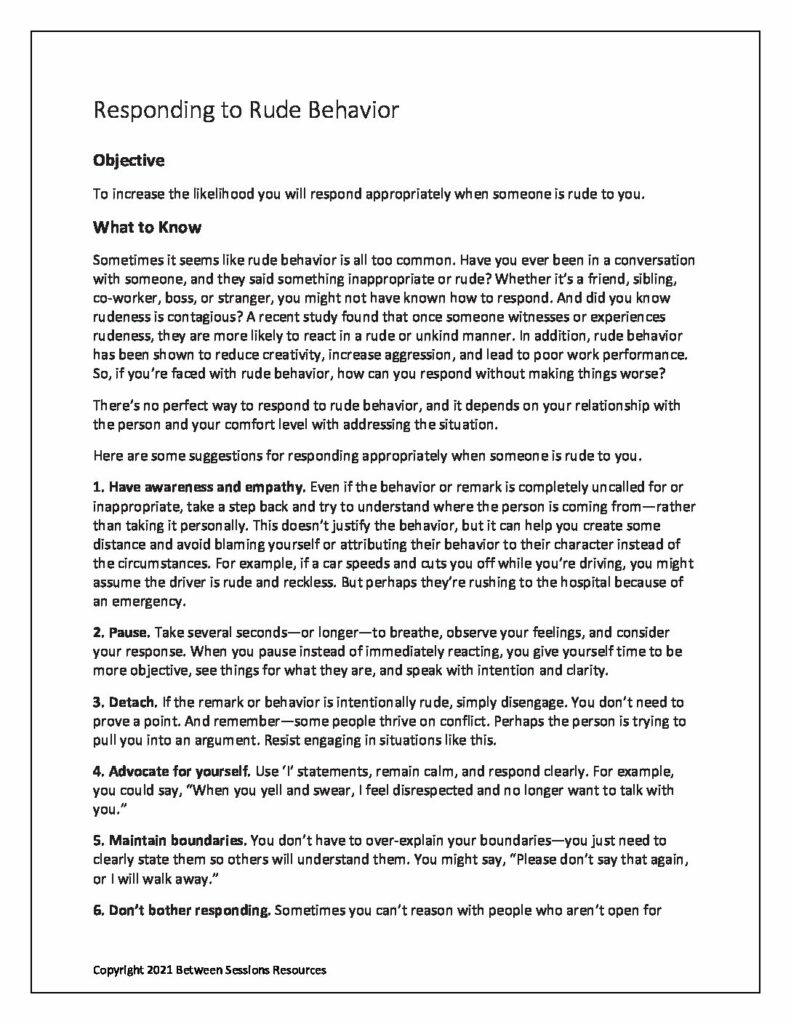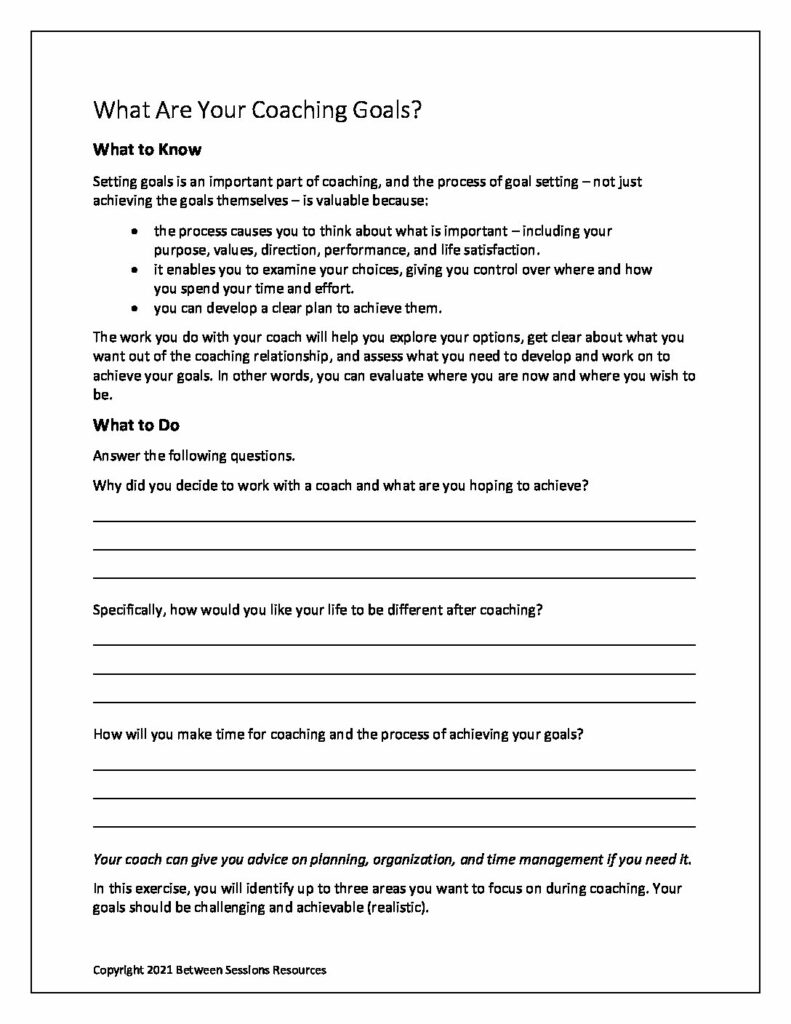This worksheet describes a “Triple-A Technique” listening technique that involves: Attitude, Attention, and Adjustment. It includes a brief assessment to help people see if they have problems in listening and lists some basic active listening skills. The worksheet includes a chart to help people practice this technique. (0322, communication, listening skills, ADHD, ASD, Asperger Syndrome)
This worksheet helps people who have experienced the suicide of a loved one understand some of the thoughts they are having and feelings they are experiencing such as shame, disbelief, anger, blame, abandonment and rejection. It gives them four ways to take care of themselves recommended by the National Suicide Prevention Lifeline. (0222, suicide, self-care, grief, healing)
Divorce can be a devastating experience and some people feel that they will never find happiness again. This worksheet provides people with 15 strategies to heal and move on to a happier and more fulfilling life. Questions help people think about what is holding them back and what can help them find the support they need to move forward. (0222, divorce, relationship, healing)
The RESISTT Technique is a DBT technique to help people deal with overwhelming emotions. The acronym stands for: Reframe the Situation, Engage in a Distracting Activity, Someone Else, Intense Sensation, Shut it Out, Neutral Thoughts. The worksheet helps people understand how each technique can help them in regulating their emotions. (0122, DBT, Dialectical Behavior Therapy, emotional regulation)
Apologies can go a long way to repair a relationship, but only when they are sincere. This worksheet explains the five steps in making authentic apologies showing the other person that you understand how he or she feels and that you want to make amends. The worksheet gives people a chance to practice and reflect on this important social skill. (0122, social skills, apology, relationships)
This worksheet is designed to help people understand the dynamics of rebound relationships. There are 9 tips for people who might be tempted to get into a rebound relationship which could be detrimental to them over time. A serious of questions helps people explore their feelings about their divorce and their thoughts about dating. (0122, divorce, relationships, breakup, depression)
This worksheet is designed to help people who are often irritated and agitated learn to notice these problems before they get out of hand and understand the social consequences of their behavior. It suggests several ways to cope with these problems and a chart to measure thoughts, behaviors, and consequences. (1121. Bipolar Disorder, relationships, workplace)
This worksheet gives people eight techniques to deal appropriately and effectively with rude behavior.
(1021, workplace, relationships)
This worksheet is designed to help people understand the process of setting coaching goals and what they hope to achieve in their coaching journey. (1021. Coaching, goal setting)
This worksheet is designed to help people identify beliefs which are unnecessarily limiting to themselves or others. It is designed to help people replace limiting beliefs with empowering thoughts. (0921, dysfunctional thoughts, irrational beliefs, coaching)

